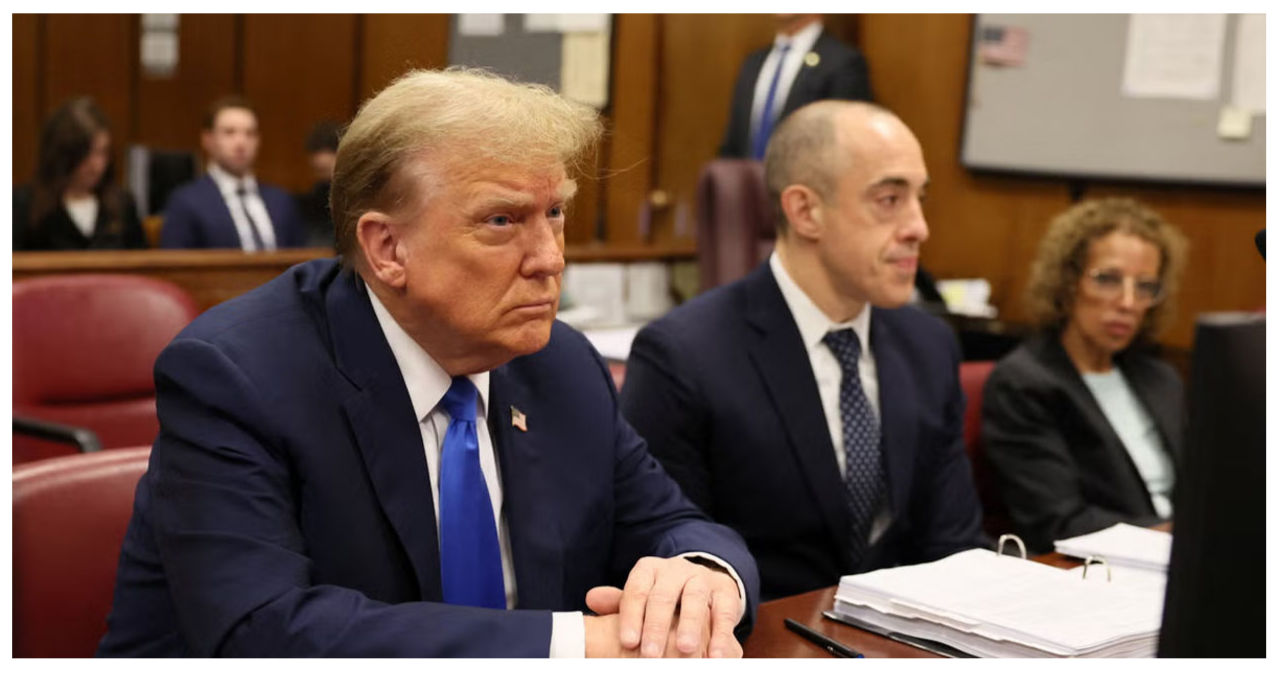Two jurors who were previously selected for Donald Trump’s hush-money trial have been dismissed from the case due to the court’s struggle in finding impartial individuals from New York.
The court proceedings on Thursday morning encountered a bumpy start as the jury selection resumed following a day’s recess on Wednesday.
One of the jurors, juror No 2, expressed concerns about the disclosure of her personal details in the jury questionnaire. She worried that these details could potentially be used to identify her. Additionally, she expressed apprehensions about how these concerns might impact her ability to remain impartial in the case.
Later, one of the jurors, juror No. 4, arrived late to court, which raised concerns among Manhattan prosecutors regarding the truthfulness of his previous answers during questioning earlier in the week.
Judge Juan Merchan dismissed both individuals, which reduced the panel back down to five members.
During the jury selection process on Tuesday, Juror No 2, an oncology nurse from New York, was sworn in. However, she later revealed to Judge Merchan that she had received news articles from friends, family, and colleagues that contained personal details about her life. As a result, people were curious whether she was one of the jurors in the trial.
During her conversation with Judge Merchan, she expressed her belief that she could not be fair and unbiased at this stage.
On the jury questionnaire, there are various inquiries regarding the employment history of potential panel members, which includes their current and past employers. Moreover, certain media outlets have provided information on the physical attributes and accents of the jurors.
After the juror exited the courtroom, Judge Merchan promptly requested the media to refrain from disclosing any specific information that could potentially identify the jurors among their colleagues. This involved censoring responses related to their occupation in the questions asked.
Judge Merchan expressed his frustration with the media for reporting specific details about people, stating that it undermines the whole purpose of having an anonymous jury.
Juror No 4, who had expressed his fascination with Mr. Trump before joining the panel, did not appear for the jury selection at its scheduled time of 9:30 am ET.
Prosecutors expressed concerns about his potential dishonesty regarding his previous criminal record on his jury selection form.
The Manhattan District Attorney’s office has discovered a record of a man with the same name who was arrested during the 1990s for tearing down political advertisements.
Juror No. 4 was dismissed from the court after having a private conversation with Judge Merchan upon his arrival hours later.
The judge sealed that portion of the record, leaving the reasons for his dismissal shrouded in mystery.
When he exited the courthouse, The New York Times questioned the man about his thoughts on being dismissed. In response, he simply stated, “Nope.”
Five jurors are currently seated on the panel of 12 jurors and six alternates who hold the authority to determine the former president’s destiny.
Mr. Trump stands accused of falsifying 34 business records in an alleged attempt to conceal hush-money payments made to adult film star Stormy Daniels prior to the 2016 presidential election.
It is alleged that the cover-up was a part of a catch-and-kill scheme, where Mr. Trump engaged in an effort to influence the outcome of the election.
Mr. Trump has consistently denied any wrongdoing and has pleaded not guilty to the charges.
Jury selection will carry on until 18 New Yorkers have been chosen on Thursday.
Approximately 500 Manhattan residents may receive notifications to appear for jury duty and potentially serve on the panel.
Every day, a batch of 96 potential jurors makes their way into the courtroom to undergo questioning. Initially, they are inquired about their ability to be unbiased and fair in the case, as well as any obligations or medical conditions that might hinder their service on the trial, which could extend to as long as two months. Those who admit their inability to be impartial or fulfill their duties are excused from serving.
Jurors are then randomly chosen to respond to a survey consisting of questions about their relationship status, place of residence, news consumption habits, and other relevant information.
Opening arguments in the trial could potentially begin as early as Monday, according to Judge Merchan.

